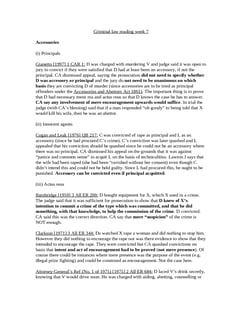R v Tolson [1889] 23 QBD 168
Judgement for the case R v Tolson
KEY POINTS
The mental element known as "mens rea" is used to determine the defendant's intent when the focus is on bigamy, the act of marrying while legally bound to another spouse.
This case dealt with a second marriage while the first spouse is still legally alive, raising questions about the law on bigamy when one spouse has been absent for less than seven years. The defendant's defense hinged on an honest belief in the deceased spouse's death based on reasonable grounds. This case emphasised the importance of the defendant's state of mind.
The case was governed by Section 57 of the 24 & 25 Victoria, Chapter 100, setting the legal framework for interpreting and applying the law concerning bigamy, mental intent, and honest belief.
FACTS
The defendant was found guilty under Section 57 of the 24 & 25 Victoria, Chapter 100, commonly known as 24 & 25 Vict. c. 100, s. 57. The charge against the defendant was bigamy, as she had participated in a marriage ceremony within seven years after being deserted by her husband.
During the trial, the jury made a significant finding. They determined that, at the time of her second marriage, the defendant genuinely believed in good faith and had reasonable grounds to believe that her husband was deceased. This indicated the defendant's honest and reasonable belief in her husband's death at the time of her second marriage.
JUDGEMENT
The court held that in cases where there exists a bona fide belief, supported by reasonable grounds, in the spouse's death at the time of contracting the second marriage, such a belief constituted a valid and lawful defense to the indictment.
Consequently, the court found that the conviction in this case was erroneous and should be overturned.
This judgment underscores the importance of considering an individual's genuine and well-founded belief when assessing their legal culpability in cases of bigamy.
COMMENTARY
The jury found that at the time of the defendant's second marriage, she genuinely believed in good faith and had reasonable grounds to believe that her previous husband was deceased.
The court ruled that when there exists a bona fide belief, supported by reasonable grounds, in the death of a spouse when entering into a second marriage, such a belief serves as a valid and lawful defense against the indictment.
The court deemed the initial conviction to be in error and ordered it to be overturned. This judgment was about the importance of considering the sincerity and reasonableness of an individual's belief when evaluating their legal responsibility in cases of bigamy.
ORIGINAL ANALYSIS
Defendant, on reasonable grounds, believed her husband to be dead and therefore remarried. In fact he was still alive.
The court majority held that a BF belief on reasonable grounds as to the husband’s death was a defence to the charge of bigamy.
Hawkins LJ
Said, it would be unfair to punish someone in the total absence of fault.
RELATED CASES
For Further Study on R v Tolson
Need instant answers? Our AI exam tutor is here to help.
Ask questions 🙋 Get answers 📔 It's simple 👁️👄👁️
Our AI is educated by the highest scoring students across all subjects and schools. Join hundreds of your peers today.
Get StartedSimilar Cases
Related Product Samples
These product samples contain the same concepts we cover in this case.
| Criminal Law | Homicide Notes (20 pages) |
| Criminal Law | Mens Rea — Intention Recklessness And Negligence Notes (24 pages) |

 Since 2010, Oxbridge Notes has been a trusted education marketplace, supplying high-quality materials from top achievers at universities like Oxford, Cambridge, LSE, Harvard, and Yale.
Since 2010, Oxbridge Notes has been a trusted education marketplace, supplying high-quality materials from top achievers at universities like Oxford, Cambridge, LSE, Harvard, and Yale.